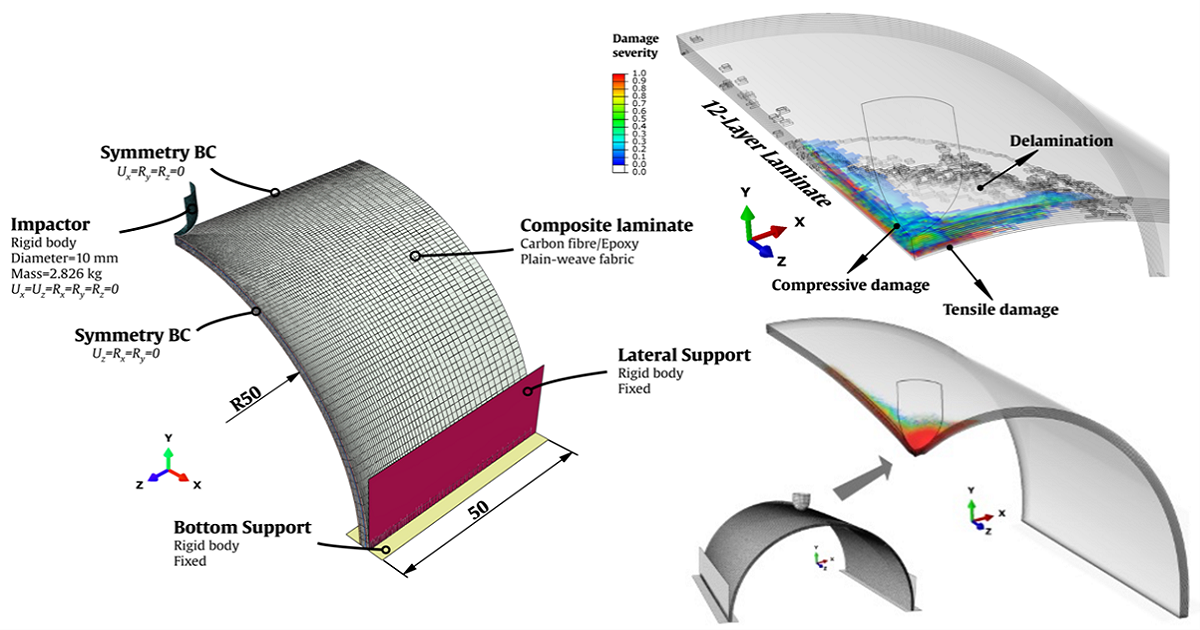- 3.2Impact Factor
- 6.4CiteScore
- 16 daysTime to First Decision
Advancements in the Structural Integrity of Composite Materials
This special issue belongs to the section “Mechanics of Materials“.
Special Issue Information
Dear Colleagues,
The utilization of composite materials is progressively supplanting traditional materials such as metals due to their advantageous properties, including lightness, high strength, design flexibility, and extended service life. However, this transition presents challenges in designing composite structures, forecasting damage initiation and progression, and establishing safe operational limits to ensure structural integrity. Addressing these complexities, this Special Issue aims to furnish essential data, models, and tools crucial for understanding structural integrity and predicting the lifetimes of composite materials. This endeavor necessitates the use of sophisticated mathematical, computational, and experimental methodologies. Therefore, we invite scholars to contribute original research and review papers focusing on enhancing the reliability of structural integrity in composite materials through precise and efficient modeling, design, analysis, experimental validation, and other pertinent approaches.
Dr. Paulo Nobre Balbis dos Reis
Dr. Luis Miguel Marques Ferreira
Guest Editors
Manuscript Submission Information
Manuscripts should be submitted online at www.mdpi.com by registering and logging in to this website. Once you are registered, click here to go to the submission form. Manuscripts can be submitted until the deadline. All submissions that pass pre-check are peer-reviewed. Accepted papers will be published continuously in the journal (as soon as accepted) and will be listed together on the special issue website. Research articles, review articles as well as short communications are invited. For planned papers, a title and short abstract (about 250 words) can be sent to the Editorial Office for assessment.
Submitted manuscripts should not have been published previously, nor be under consideration for publication elsewhere (except conference proceedings papers). All manuscripts are thoroughly refereed through a single-blind peer-review process. A guide for authors and other relevant information for submission of manuscripts is available on the Instructions for Authors page. Materials is an international peer-reviewed open access semimonthly journal published by MDPI.
Please visit the Instructions for Authors page before submitting a manuscript. The Article Processing Charge (APC) for publication in this open access journal is 2600 CHF (Swiss Francs). Submitted papers should be well formatted and use good English. Authors may use MDPI's English editing service prior to publication or during author revisions.
Keywords
- fiber-reinforced polymer
- composite 3D printing
- structural integrity
- testing
- numerical modeling

Benefits of Publishing in a Special Issue
- Ease of navigation: Grouping papers by topic helps scholars navigate broad scope journals more efficiently.
- Greater discoverability: Special Issues support the reach and impact of scientific research. Articles in Special Issues are more discoverable and cited more frequently.
- Expansion of research network: Special Issues facilitate connections among authors, fostering scientific collaborations.
- External promotion: Articles in Special Issues are often promoted through the journal's social media, increasing their visibility.
- e-Book format: Special Issues with more than 10 articles can be published as dedicated e-books, ensuring wide and rapid dissemination.

